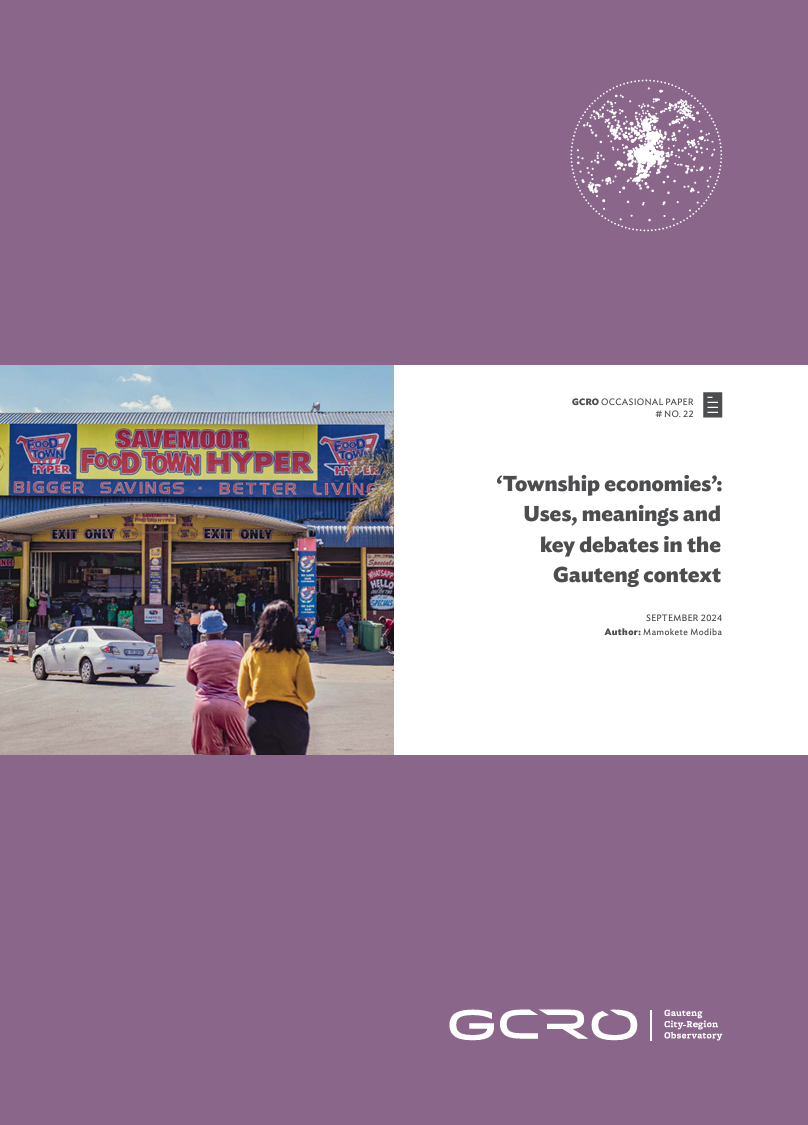'Township economies': Uses, meanings and key debates in the Gauteng context

01 September 2024
Gauteng City-Region Observatory (GCRO)
English
Working paper
Africa
This GCRO (Gauteng City-Region Observatory) Occasional Paper examines the diverse definitions, roles, and debates surrounding "townships" and "township economies" in Gauteng, South Africa. It explores how these terms' meanings impact government-led strategies for developing township economies in the post-apartheid context. Townships in Gauteng are often characterised by low-income, densely populated Black African communities on urban peripheries, marked by poverty and unemployment.
The paper highlights the evolution of township development strategies, from focusing on essential services in the post-apartheid context to current goals emphasising economic inclusivity and sustainable opportunities. Gauteng's Provincial Government has promoted economic transformation through various initiatives, such as local procurement, improving living conditions, fostering entrepreneurship, and creating supportive regulatory frameworks for township businesses.
The multiple uses and meanings of the term has implications for framing government-led township economic development strategies in post-apartheid Gauteng. These uses and meanings invoke various explicit and implicit debates regarding township economic development.
The key debates are:
- Sources of underdevelopment: Are townships underdeveloped due to lack of participation in the economy, or because of how people participate (e.g. whether it leads to economic growth or perpetuates poverty)?
- Jobs proximity: Should jobs be brought closer to township residents, or should transport be improved to enable residents to work outside townships?
- Self-sufficiency vs. integration: Should township economies be self-sustaining, or should they be integrated into the broader economy?
- Homogeneity vs. heterogeneity: Though often seen as similar, townships vary due to location, history, and other factors.
- While this paper centres on government policies, it also notes the significance of other stakeholders in transforming townships into vibrant economic hubs, suggesting further research into these collaborative efforts.
Abstract based on original source.


Comments